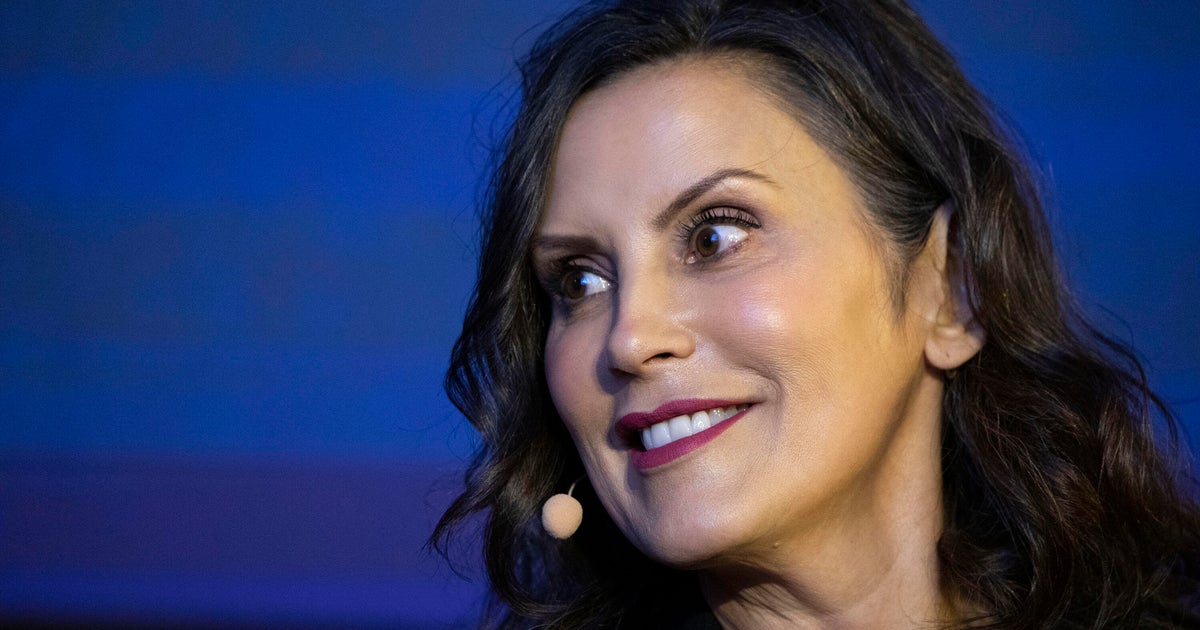Biden's $5.8 trillion budget proposal geared toward moderates in difficult year
More than a list of numbers, President Biden's budget documents what he'd most like to accomplish this year, and it offers a glimpse into how his administration plans to confront some of the bracing political realities he faces right now.
His $5.8 trillion proposal is coming up against the headwinds of a divided Congress, high inflation, low presidential approval ratings and midterm elections that threaten Democratic majorities in the House and Senate later this year.
"What he faces this particular year is very daunting" — since Democrats are the "odds-on favorite to lose the majority in at least the House, and quite possibly, the Senate," said Mark Harkins, a senior fellow at Georgetown University's Government Affairs Institute.
"It will surprise me greatly if anything of note really made it out of this particular Congress," Harkins added.
The president's proposal includes a tax hike of $2.5 trillion on the wealthy and corporations, $30 billion in funding for state and local police, about 4% more for military spending, $45 billion to combat climate change and funds to ease supply chain issues.
The White House also claims the budget would reduce the deficit by more than $1 trillion over the next decade. It contains some elements of the president's signature Build Back Better agenda, like climate change. But it does not include some of the key provisions, including funding for programs like universal pre-K and paid family leave because he was unable to convince all the Democrats in the Senate to support it.
Each year, the president's budget sets non-binding spending levels for the government, while Congress passes individual appropriations bills that provide the actual funding.
Thomas Kahn, a distinguished faculty fellow at American University's Center for Congressional and Presidential Studies, said he thinks many elements of the president's budget — including funding for additional police officers — are designed to appeal to Republicans as well as Democrats. He doesn't think the president's proposal is necessarily dead on arrival, as presidents' budgets often are.
But it's unlikely 10 Senate Republicans would join the Senate's 50 Democrats in supporting major appropriations bills ahead of an election in which Democrats are projected to do poorly, Harkins and Kahn agree. Republicans, they said, will want to wait to see whether they will take majorities in the House and possibly Senate, which would give them control of the nation's purse strings.
More likely than not, Harkins said, the Congress will keep funding the government at the same levels once the fiscal year ends in September. Republicans "have no reason to help to get anything done because they believe they will have a stronger hand negotiating" next year, Harkins said.
Mr. Biden's expected difficulty in getting some of his agenda enacted through the appropriations process is not unusual. In fact, in recent decades, it's been rare for Congress to pass all of the necessary appropriations bills before October 1. A Pew Research Center analysis dating back to 1977 found 100% of Congress' appropriations bills were only passed in four years — 1977, 1989, 1995 and 2000 — none of which were years when midterm elections took place, and only one of which, 2000, was a national election year. Most years, especially recently, Congress passed few, if any, of the bills that fund the government's agencies and programs by the fiscal deadline.
Senate Majority Leader Mitch McConnell, speaking on the Senate floor Monday, alluded to the upcoming midterm elections as he criticized the president's proposal.
"From a president that's decided not to pivot, from a Democratic party that has chosen not to correct course on its own, every data point suggests the American people want and need a major course correction," McConnell said Monday. "It appears that in about seven months, they may have to provide it themselves."
Mr. Biden likely faces some challenges in corralling members of his own caucus, too, particularly moderate Senators Joe Manchin and Kyrsten Sinema.
Kahn said tax increases "in general" are difficult to pass, more so in an election year. But he thinks this tax increase could have a better shot because it's targeted at the wealthy, and it's tied to deficit reduction, something Manchin wants. And Kahn observed the budget contains spending priorities that will be helpful to moderate Democrats running for reelection — like that boost in defense spending, as well as more funding for policing, immigration enforcement and deficit reduction measures.
Manchin has signaled he's open to some measures to address the growing threat of climate change, too, though he has resisted some approaches that he believes would hurt the energy industry or increase the nation's deficits.
His communications director, Sam Runyon, said that Manchin's approach emphasizes U.S. energy independence and favors an energy policy that combines renewable and non-renewable domestic sources of energy. Many liberals in Congress and the administration would prefer to be more aggressive about weaning the country off greenhouse gas-emitting energy sources, like coal.
Manchin "remains seriously concerned about the financial status of our country and believes fighting inflation by restoring fairness to our tax system and paying down our national debt must be our first priority," Runyon said.
Sinema's office has not commented on the president's budget proposal.
But, as Harkins said, Congress is unlikely to complete its appropriations process this year.
Continuing resolutions are problematic because they create uncertainty and make it more difficult for agencies and departments to plan well for the months ahead, and this makes them less financially efficient, Harkins said.
"The game is gonna be in January and February, and that's really unfortunate, because government doesn't work well when we're doing continuing resolutions for a quarter to a half of a year," Harkins said.



